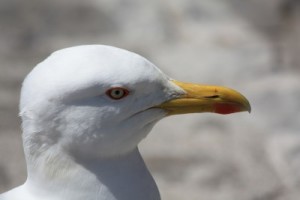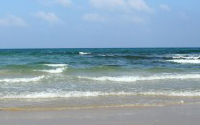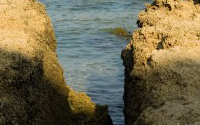SEABIRD DEATH CHEMICAL TO BE BANNED
SEABIRD DEATH CHEMICAL TO BE BANNED
Wildlife charities have welcomed the International Maritime Organisation’s (IMO) swift action to ban ships across the world from discharging all forms of high viscosity polyisobutylene (PIB) into the sea during tank cleaning operations. PIB was the chemical responsible for the deaths of over 4000 seabirds on the south west coast earlier this year (2013).
The tragedy, the largest marine pollution incident of its kind in the region since Torrey Canyon, shocked thousands of people.

At a meeting of the IMO’s working group on the Evaluation of Safety and Pollution Hazards of Chemicals (ESPH) in London today, it was decided to change the classification of high viscosity PIBs to require full tank prewash and disposal of all residues at port and prohibit any discharge at sea from 2014. This will also apply to new “highly-reactive” forms of PIB, which are currently being transported un-assessed.
The recommendation to do this had been made by the Maritime and Coastguard Agency (MCA) on behalf of the UK Government, following vigorous campaigning by wildlife charities and the public.
Alec Taylor, Marine Policy Officer for the RSPB said; “We are delighted with the action taken by the IMO. The global trade in PIB products is increasing and with it the risks to our precious marine environment. Today’s global ban on the deliberate discharge of high viscosity PIBs into our seas is a real step forward and one that we hope will end this particular pollution threat to seabirds and other marine life.”
Between February and April this year over 4000 seabirds, of at least 18 species, mainly guillemots, were washed up on beaches from Cornwall to Dorset in two separate incidents. The majority were dead, but some were alive and taken for treatment by the RSPCA at their West Hatch Centre. The subsequent MCA investigation revealed that the birds had been smothered with high viscosity PIB. The same substance was also responsible for the deaths of hundreds of seabirds off the Dutch coast in March 2010.

RSPCA senior wildlife scientist Adam Grogan said: “We welcome this decision. Our staff worked around the clock washing and treating these poor birds in January and April and it was heartbreaking seeing the pitiful state they were in. Hopefully this will help stop incidents like these happening again, and save wildlife from suffering and dying like this in the future.”
Joan Edwards, Head of Living Seas for The Wildlife Trusts, said: “We welcome today’s ban. The thousands of dead and dying seabirds witnessed earlier this year were the most visible victims of mismanagement. Impacts on other parts of marine life support systems may have been just as widespread, and more serious. Not to mention the impacts on tourism of dead seabirds on the beach – particularly pressing in south-west counties which rely so heavily on summer visitors.”
Peter Burgess, Devon Wildlife Trust’s Conservation Advocacy Manager said; “This is an important decision for wildlife. It’s pleasing to see how quickly the IMO has acted and heartening to hear that local people’s concerns have helped build momentum towards achieving this. However, we do see the PIB incidents of 2013 as a wake-up call. Dead and dying seabirds washed up on some of the south-west’s most popular beaches were hard to ignore. But how many unseen and unreported activities are damaging our precious marine wildlife in undersea habitats that are almost completely unprotected by law?”
The public response to the tragedy was significant, with more than 25,000 people signing petitions organised by 38 Degrees and Avaaz calling for a ban on the discharge of PIB.
Alec Taylor from RSPB added; “There was a lot of hard work by RSPB, other wildlife charities and the MCA, with support from several MPs on the south west coast. But the huge support we received from members of the public, many of whom experienced the effects of this pollution first hand as they walked the beaches, was perhaps the clinching factor in achieving such a quick decision to prevent discharges of harmful PIBs.”

